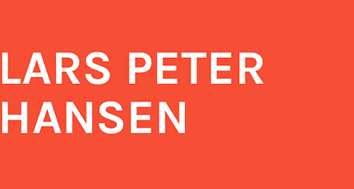It was great to attend a recent meeting of the Macro Finance Society held here at the Becker Friedman Institute, co-organized by Francois Gourio, Nick Roussanov, and Andrea Eisfeldt. I have had the privilege of attending previous meetings in addition to this recent one—the eighth meeting of this society.
The society was formed in 2012 and held its first meeting in June of 2013.
By design, the meetings feature research by younger scholars that provokes spontaneity and energy that is often not present in other similar meetings. The founders of this society have done a remarkable job in launching it and turning it into such a proactive venture supporting a truly important area of economic research.
When I came out of graduate school, this field of “macro finance” did not exist. A literature started emerging exploring connections between financial markets and the macroeconomy. Empirical evidence and policy challenges opened the door to new advances in modeling. The recent financial crisis and its observed macroeconomic impacts have recently stimulated a variety of new research aimed at providing a deeper understanding of the crisis and more prudent oversight of financial markets in the future.
The conference contributions complemented nicely one of BFI’s initiatives. The Becker Friedman Institute funded by the Alfred P. Sloan Foundation, CME Group Foundation, and Fidelity Management Research hosts a multi-university Macro Financial Modeling group.
There were several nice papers presented, many by younger scholars. I will not aim to provide summaries since supported graduate students will be providing paper descriptions for the Society web page. Paper presentations, however, were only part of the story. The formal discussions were productive and revealing and opened the door to substantial informal exchanges about the presented research.
The conference led off with a session that honored an exceptional scholar, David Backus, who unfortunately passed away recently. Dave made some truly important contributions in international finance–contributions that continue to shape how we view research in this area. I have personally learned much from David’s research over the years and from personal interactions.
In addition to the two interesting contributions to international finance, the conference featured other important topics. The paper by Ivan Alfaro, Nicholas Bloom, and Ziaoji Lin opens the door to important research on connections between financing restrictions and uncertainty shocks. Uncertainty comes in different “shapes and sizes.” It is a wide open area for future model development to understand better which forms of uncertainty have the biggest adverse consequences to resource allocation.
There has been a recent interest in how labor market outcomes are influenced by the risk prices that prevail in financial markets. Mete Kilic and Jessica Wachter contribute to this literature by modeling how market concerns about rare events impact the hiring decisions of firms.
Daniel Greenwald presented an ambitious structural and quantitative model that incorporates connections between mortgage credit and the macroeconomy.
Overall, the research questions addressed in the conference are fascinating and important, and it was great to take inventory on our current understanding of the answers.
The keynote address at this conference was given by my colleague, Doug Diamond, on some joint research with Anil Kashyap. By extending ideas in some of Doug’s important prior work on bank runs, Doug and Anil offer a new and revealing perspective on liquidity requirements. They provide both a critical assessment of current policies and suggestions for improvements.
I have had a few honors in my career, and I remain proud to be named an initial distinguished fellow of this society.
